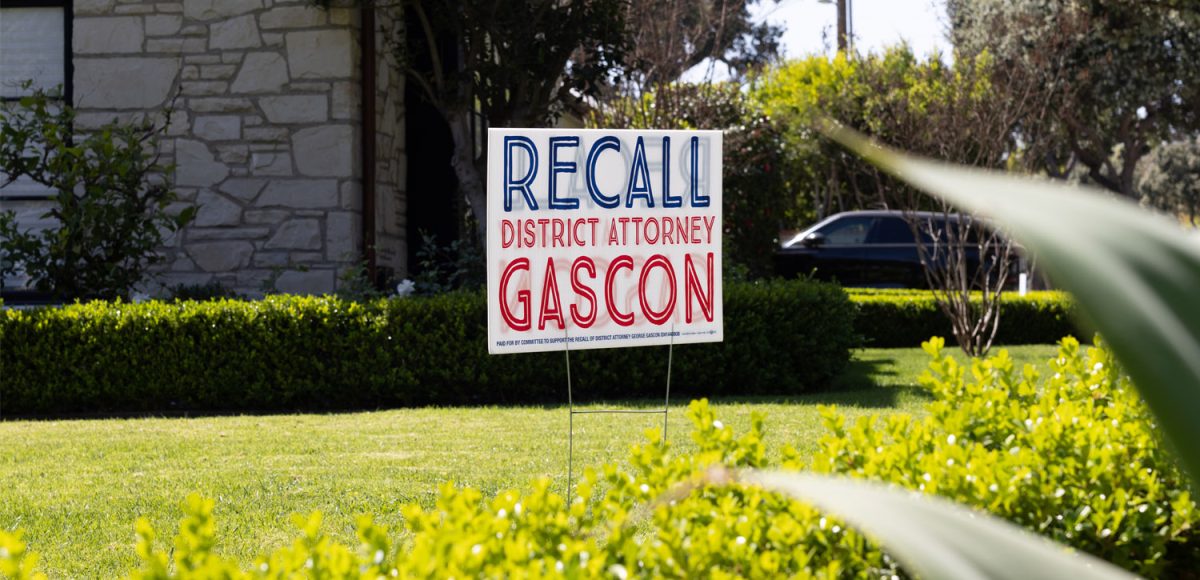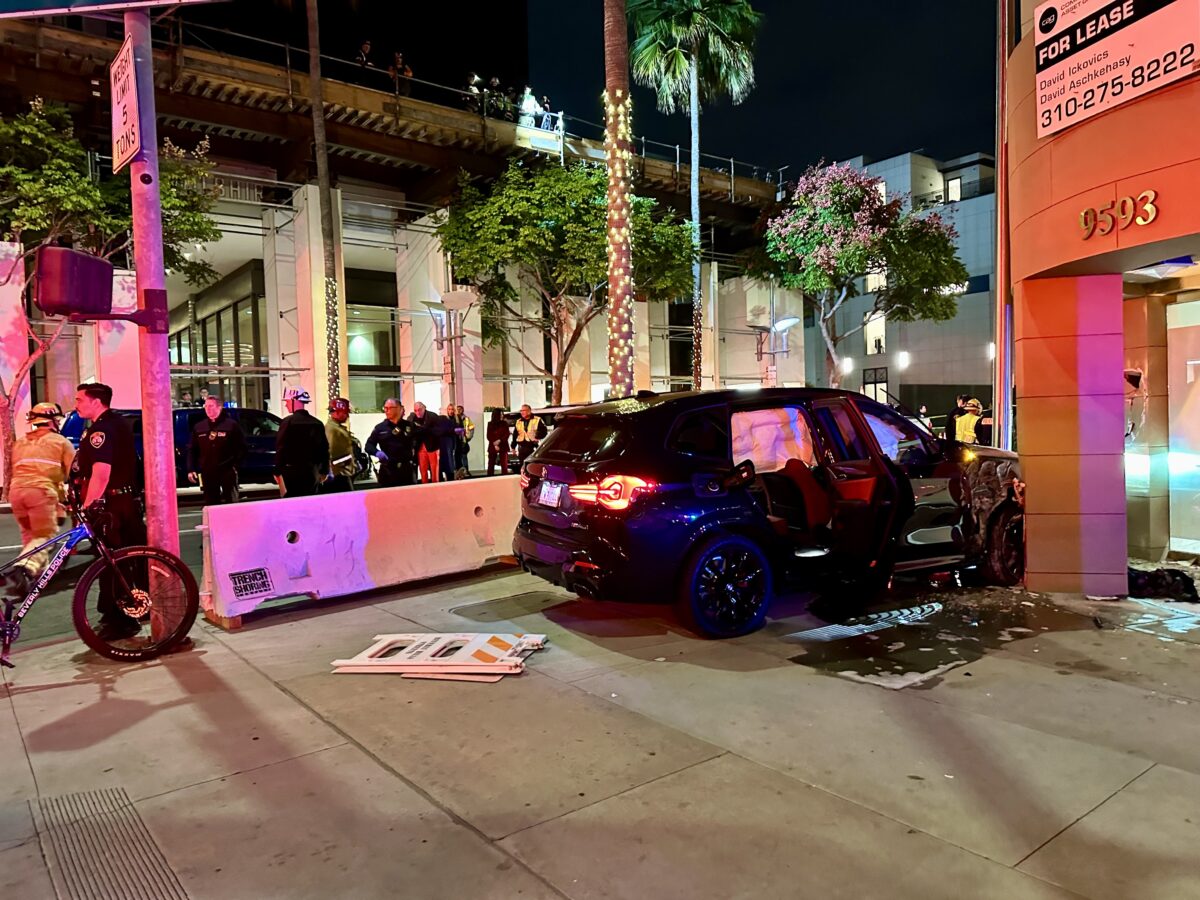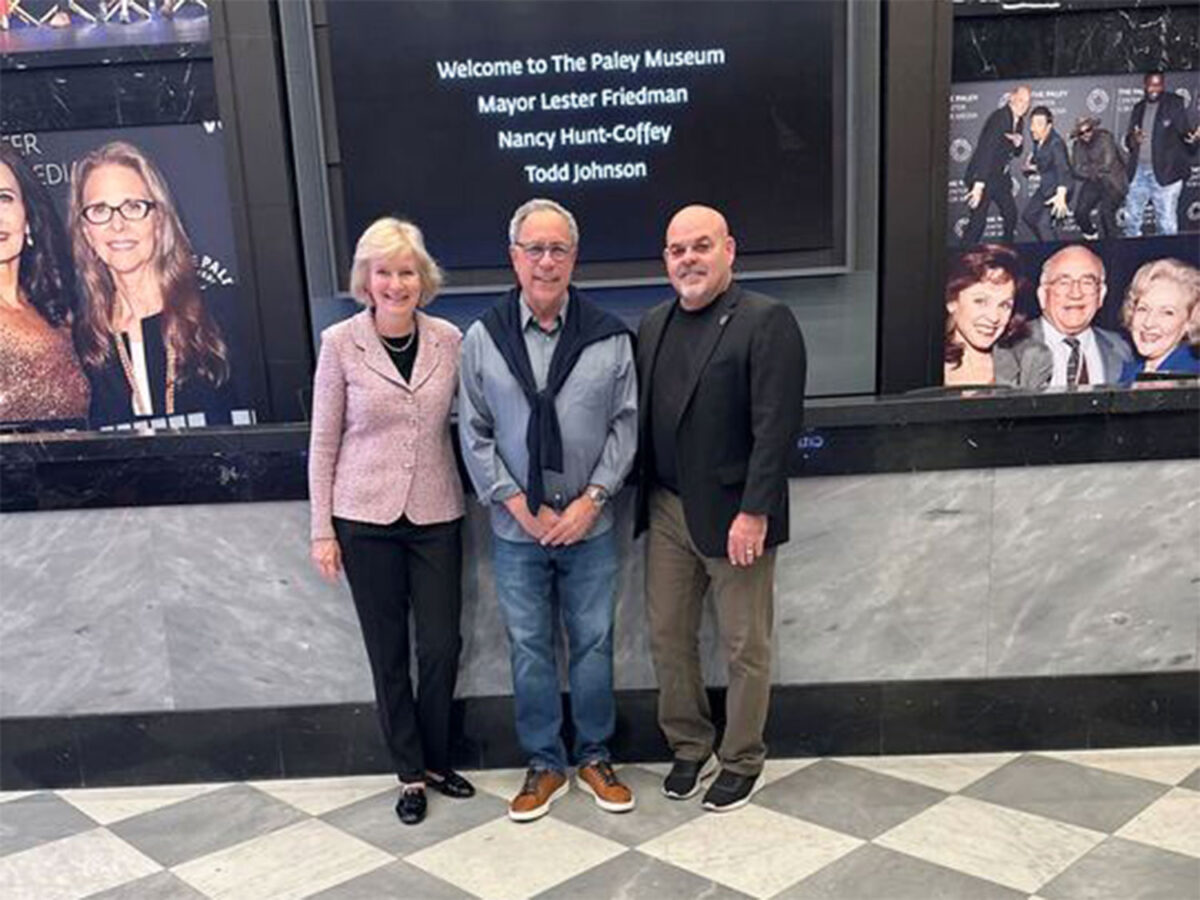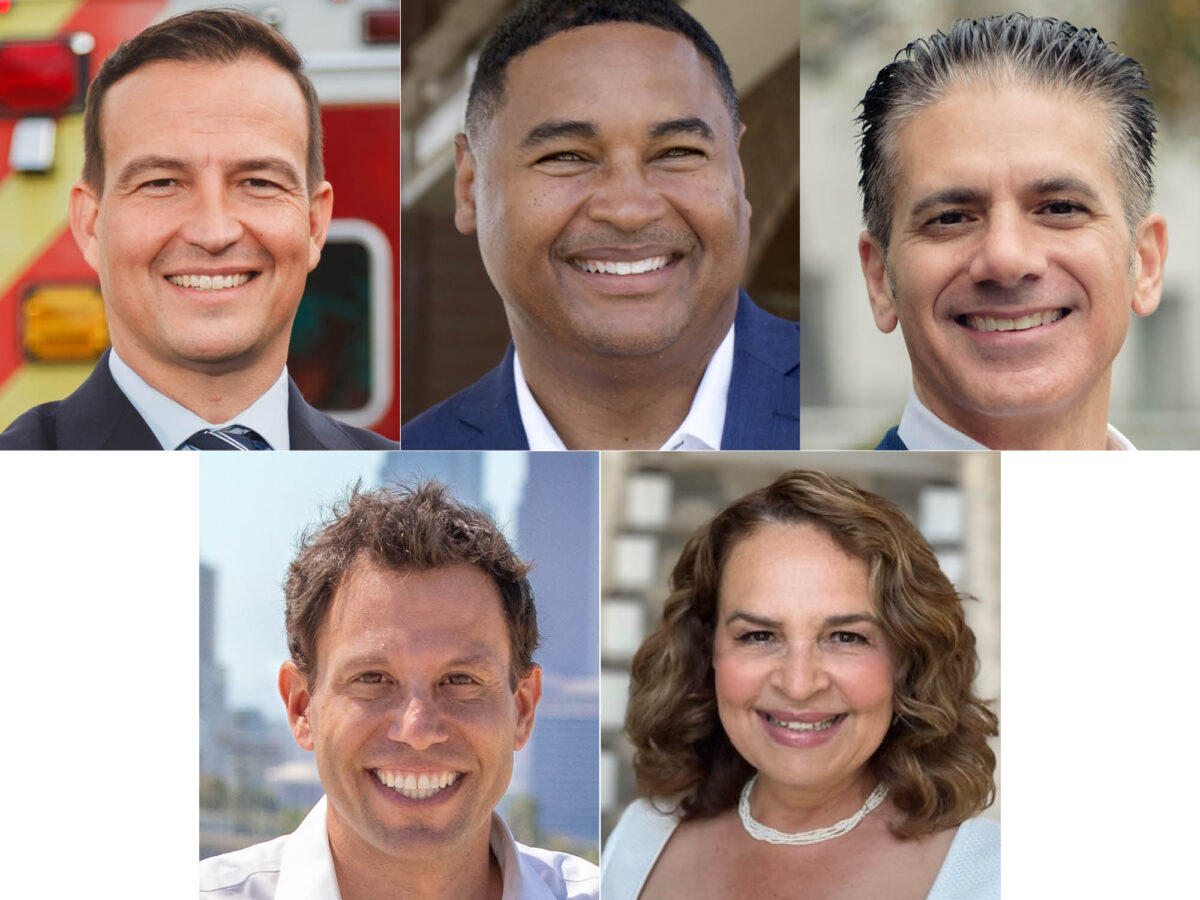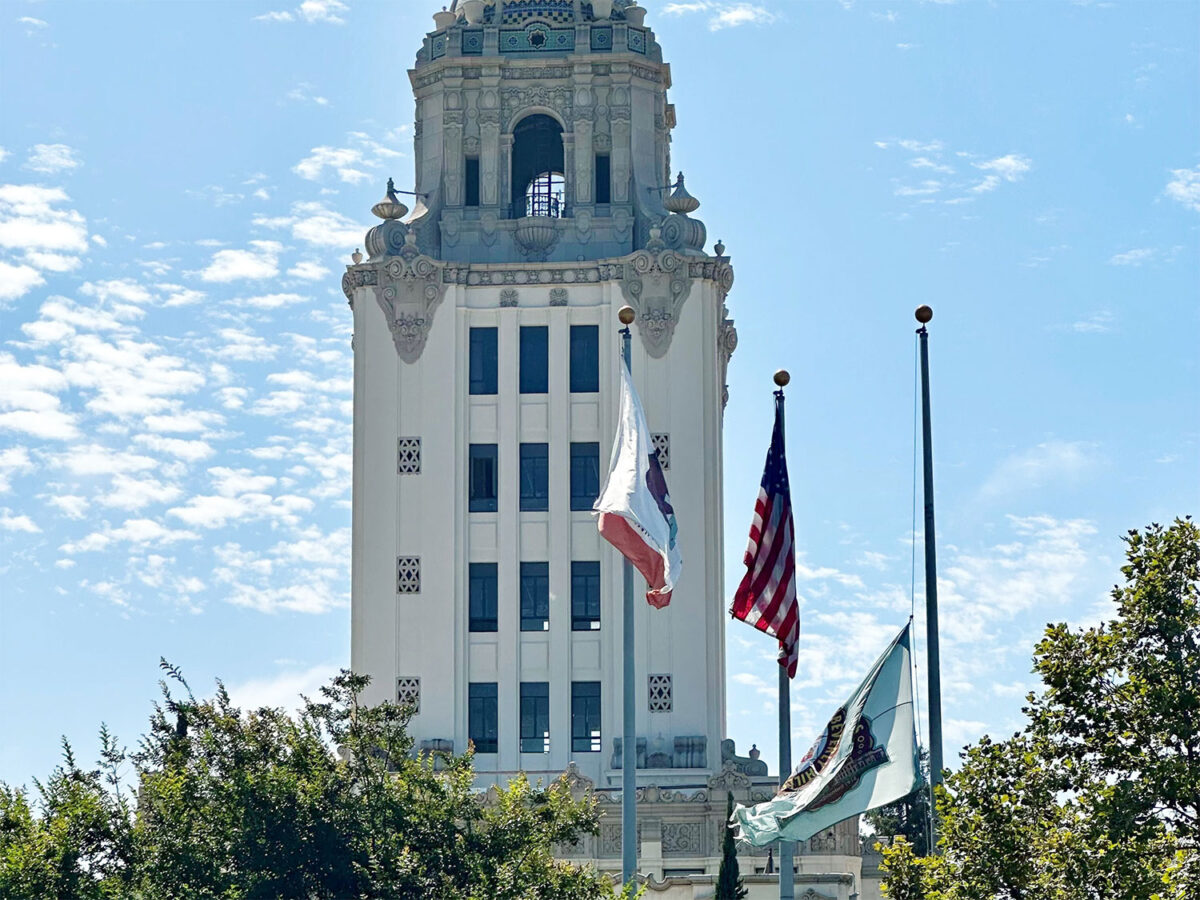The campaign to recall Los Angeles County District Attorney George Gascón submitted 717,000 signatures to the Los Angeles County Registrar of Voters on June 6. The county will now begin the process of verifying the signatures.
“The people of Los Angeles have spoken in a resounding way, with hundreds of thousands of residents adding their names to the recall petition and 37 cities voting no confidence in their District Attorney,” the Recall DA George Gascón campaign said in a statement. “The sheer magnitude of this effort, and time and investment required to get to this point, show how strong the public desire is to remove George Gascón from office.”
To initiate a recall in Los Angeles, proponents must submit valid signatures equal to 10% of registered voters at the time of Gascón’s election, which comes out to 566,857 signatures.
The county has 30 working days to examine and verify signatures, during which time the Los Angeles County Registrar-Recorder/County Clerk will either verify all the submitted signatures or verify a sample of 5% of the signatures. The recall campaign will need a verification rate of about 79% in order to send Gascón to the ballot. In order to be valid, the signature must be from a voter registered in LA County, the address on the petition must match the address where they are registered to vote, and the signature must match the signature on file with the county. Failure to meet these requirements can result in the signature getting thrown out.
“The registrar will determine the verification methodology and establish its timeline in the upcoming days as we review the petitions submitted,” registrar spokesperson Mike Sanchez told the Courier in a statement.
“Verification is a multi-phased process that includes conducting a raw count of the signatures submitted, labeling the petition pages, verification of signatures, followed by a re-check/quality assurance process,” said Sanchez. “Once the verification is completed, if the petition meets the sufficiency requirement, the registrar must certify sufficiency to the Board of Supervisors at its next Regular Meeting. The Board of Supervisors then has 14-days to call for an election within a period of 88-125 days.”
Depending on the timing of this process, “the earliest the election could be held would be in combination with the November 8, 2022 Gubernatorial General Election,” Sanchez said. Otherwise, “a Special Recall Election would likely be scheduled between late December 2022 and mid-January 2023.”
Either way, a Recall DA George Gascón spokesperson told the Courier, “we’re confident we will qualify regardless of when an election is held and whether it’s a special or general.”
Voters would encounter a similar question as the one they faced in the 2021 gubernatorial recall. Voters would first be asked whether they want to recall Gascón. Those who answer yes would then select the candidate they want to replace him with. If 50% or more of voters say yes on the first question, then the candidate with the most votes wins.
If the effort fails, opponents of Gascón can still technically attempt to recall him for a third time. The first recall attempt only managed to gather around 200,000 signatures and failed to attract significant funding.
“We are waiting to hear the official count of validated signatures,” Elise Moore, a spokesperson for Stand With Gascón, told the Courier. “This will likely take several weeks. In the meantime, we remain focused on the work of keeping communities safe and creating a more equitable justice system, as we have been since day one.”
California and Los Angeles have seen a spate of recall attempts over the last year, with Newsom’s recall as the most notable and costly among them. Bids to oust Los Angeles City Councilmembers Mike Bonin, Nithya Rama and Kevin de León all failed to realize their goals.
The recall campaign received a morale boost following the successful recall of San Francisco District Attorney Chesa Boudin in June. Like Gascón, Boudin has pursued a series of progressive reforms to the office, promising to fight racial disparities and prosecute police misconduct.
While Boudin’s recall unleashed a spate of think pieces opining on the end of the progressive prosecutor movement, nearby in neighboring Contra Costa and Alameda Counties, reform-minded candidates for district attorney prevailed over their more traditional opponents.
The recall campaign received a flood of signatures at the eleventh hour. The campaign announced that it reached 566,857 raw signatures only three weeks before the deadline. In time since then, nearly 150,000 signatures rolled into the campaign’s office–in part owing to millions of petitions the campaign mailed to registered voters, but also owing to galvanization from the recent killing of two El Monte police officers. Critics of Gascón have argued that his policies contributed to the release of the man accused of killing the officers.
“Certainly, the added attention at the end, although it’s unfortunate that that’s what it takes, it definitely brought more momentum to the effort,” the recall spokesperson said.
Beverly Hills has become a prominent voice against Gascón during both the current and former recall campaigns. The City Council made the unprecedented move in March 2021 to issue a vote of no confidence against the new DA. The Council voted 3-2, with Mayor Robert Wunderlich and Councilmember John Mirisch casting dissenting votes, citing reservations with the process rather than support for Gascón.
In January, a unanimous Council voted in favor of supporting the second recall attempt, claiming that Gascón’s policies contributed to recent crime trends. Beverly Hills Police Department Chief Mark Stainbrook said in the same meeting that the elimination of cash bail had allowed suspects to return to the streets to commit more crimes.
Max Szabo, a former spokesperson for Gascón, pushed back against these claims, pointing to an analysis by the Los Angeles Times that he said “discredits the central notion that his policies have had an impact on crime in the very short amount of time he’s been in office.”
The analysis pointed to a similar rise in crime in jurisdictions with more traditional “tough on crime” prosecutors. The analysis also found that Gascón filed felonies in his first year at roughly the same rate as in the two terms of his predecessor, Jackie Lacey, though filings for less serious misdemeanors did fall significantly.” In spite of the numbers, critics have repeatedly stressed that they feel less safe under Gascón.
“We should be a city where people could feel safe. And I don’t mean just Beverly Hills, I mean everywhere in Los Angeles,” said then Vice Mayor Lili Bosse, an outspoken critic of Gascón, in voting to support the recall. “People should be able to feel safe to walk the streets of their city. People should feel safe to sleep at night in their homes, in their beds, anywhere.”



